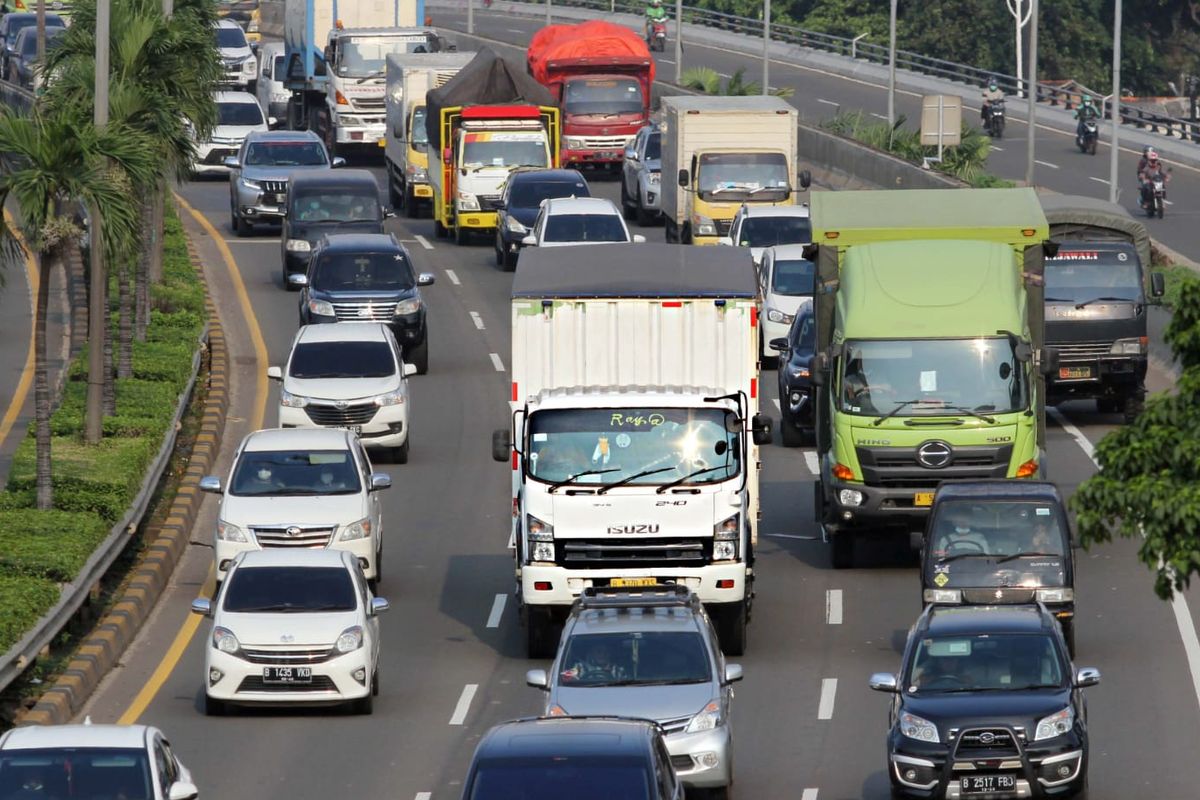The Indonesian government's decision to implement a 16-day truck restriction during the 2025 Lebaran period has raised significant concerns among various manufacturing sectors, particularly the glass and ceramics industries. This article explores the potential implications of these restrictions, the challenges faced by manufacturers, and the broader economic impact on Indonesia's industrial landscape.
Understanding the 16-Day Truck Restrictions
In anticipation of the annual Lebaran festivities, the Indonesian government has announced a 16-day restriction on truck operations, spanning from March 24 to April 8, 2025. This measure aims to alleviate traffic congestion during the holiday period, ensuring smoother travel for the public. However, the extended duration of these restrictions has sparked concerns among industries reliant on continuous logistics and supply chain operations.
Challenges Faced by the Glass and Ceramics Industries
The glass and ceramics industries are particularly vulnerable to disruptions in logistics due to the nature of their manufacturing processes:
- Continuous Production Requirements
- Glass manufacturing involves continuous production processes that require high-temperature furnaces operating non-stop. Any interruption can lead to significant operational challenges and increased costs. Yustinus Gunawan, Chairman of the Indonesian Sheet and Safety Glass Association (AKLP), highlighted that the extended truck restrictions could threaten productivity and, by extension, slow down economic activity during the Lebaran holiday.
- Inventory Management and Storage Limitations
- Manufacturers typically operate with limited storage capacity, relying on just-in-time delivery systems to manage inventory efficiently. The 16-day restriction poses a challenge for these systems, as prolonged storage of finished goods may not be feasible, leading to potential production slowdowns or halts.
- Supply Chain Disruptions
- The ceramics industry, similar to glass manufacturing, depends heavily on the timely delivery of raw materials and distribution of finished products. Extended truck restrictions could disrupt these supply chains, affecting production schedules and market supply.
Economic Implications of the Truck Restrictions
The 16-day truck restrictions are expected to have broader economic ramifications beyond the immediate impact on individual industries:
- Potential Losses in Revenue
- Industries affected by the restrictions anticipate a decline in revenue due to disrupted operations. For instance, the glass industry, which cannot afford prolonged production halts, may face increased production costs and potential sales losses.
- Impact on Employment
- Operational disruptions can lead to reduced working hours or temporary layoffs, affecting the livelihoods of workers in the affected industries. This, in turn, could have a ripple effect on local economies dependent on these industries.
- Strained Industrial Relations
- The prolonged restrictions have led to dissatisfaction among logistics providers. The Indonesian Truck Entrepreneurs Association (Aptrindo) has expressed objections to the extended duration of the operational ban, indicating potential for industrial action. Dharmawan Witanto, Chairman of Aptrindo Jakarta, stated that approximately 500 freight transport entrepreneurs plan to strike across Jakarta in protest of the 16-day restriction.
Mitigation Strategies and Recommendations
To address the challenges posed by the 16-day truck restrictions, stakeholders can consider the following strategies:
- Government-Industry Collaboration
- Open dialogue between the government and industry representatives is crucial to balance public interests with economic sustainability. Collaborative efforts can lead to more flexible policies that consider the operational realities of continuous production industries.
- Alternative Logistics Solutions
- Exploring alternative transportation methods, such as rail or sea freight, could alleviate some of the pressures caused by road transport restrictions. Investments in multimodal transport infrastructure may provide more resilience against such disruptions in the future.
- Advanced Planning and Inventory Management
- Industries can mitigate risks by adjusting production schedules and increasing inventory levels ahead of known restrictions. While this may involve additional costs, it ensures continuity during periods of logistical constraints.
- Policy Flexibility for Essential Industries
- The government could consider exemptions or special permits for industries with continuous production processes to maintain operations during restriction periods. This approach would require stringent criteria to balance economic needs with public policy objectives.
Conclusion
The 16-day truck restrictions during the 2025 Lebaran period present significant challenges to Indonesia's glass and ceramics industries, among others. The potential disruptions to production, supply chains, and revenue underscore the need for coordinated efforts between the government and industry stakeholders. By implementing proactive strategies and fostering open communication, it is possible to mitigate the adverse effects of such restrictions, ensuring both public welfare and economic stability.
Read More






 Friday, 27-02-26
Friday, 27-02-26







